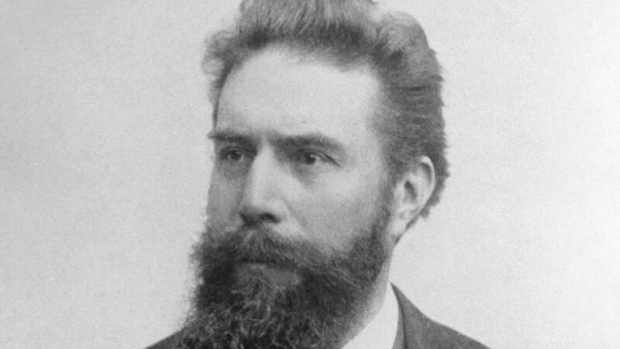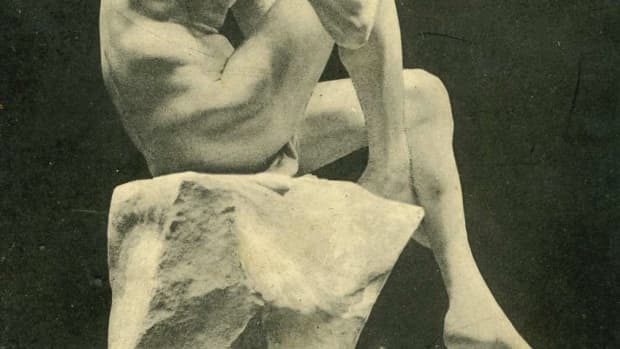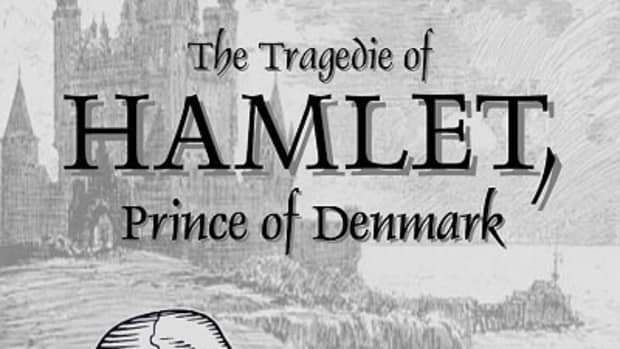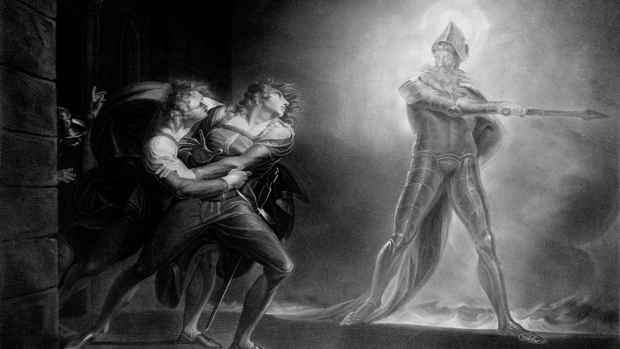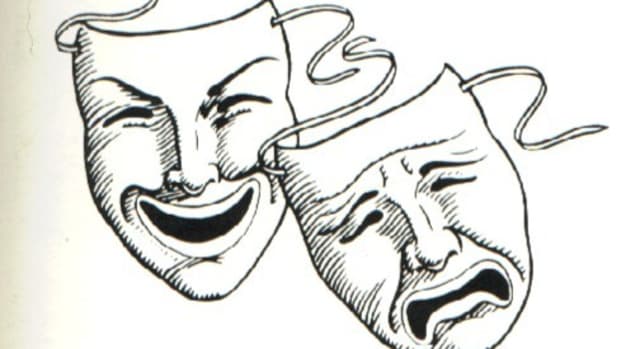Christopher Marlowe's "Doctor Faustus": Themes and Style
Who Was John Faustus?
John Faustus, born in Wittenberg, was a doctor of divinity. He was born in Rhode, Germany. His urge for power, honour and knowledge remains unsatisfied until he decides to embrace the study of magic and necromancy. The good angel urges him not to go into this, but the bad angel urges him on. Thus entering, he begins to command the presence of Mephistopheles—a great servant of Lucifer. This is sealed to Lucifer through a blood compact, and an invisible Mephistopheles is to obey whatever he desires, and this will last for the next 24 years, after which his (Faustus') soul will be forfeited to Lucifer.
Themes Portrayed
Revival of Ancient Learning
This is otherwise called renaissance, or rebirth of knowledge and attitude, and it is characterized by the search for knowledge. It also seeks proof of known theories and ideas. Faustus, in the play, probes almost all areas of knowledge, building up on the previous attainments. Knowing that he has already acquired knowledge, he searches for more, since knowledge is inexhaustible. Having weighed his current ranking as a doctor of divinities, he chooses metaphysics, magic, necromancy, circles, signs, letters, and others. As a typical renaissance man, he (Faustus) seeks to probe the unknown God, hell, and their likes, although he fails in the process.
Boundaries of Human Knowledge
In the epilogue to the play, the chorus indicates that there are permissible limits to the search for knowledge, especially within the Christian worldview. It is common knowledge that Christianity abhors necromancy and magic, but it urges men to trust God absolutely. Definitely, Faustus does the opposite: he blasphemes God. Not satisfied with knowledge so far acquired in divinity, he goes for more. By embracing necromancy and magic, he has surely overstepped the limits of knowledge in Christendom.
Conflict
The play is full of conflicts revolving around power and influence. There is conflict between good and evil: Pope and anti-Pope, and then forces of evil and good compete for Faustus' soul.
What Constitutes Standards for Good and Evil?
As earlier stated, the play essentially involves the conflict of good and evil. But then who sets the standard with which to determine what constitutes good and evil? Or is it just based on imagination? This is a moral question. The idea of being good may be seen from the point of view of heavenly conduct, while being bad may be seen from the point of view of hellish conduct. That is to say, on its own, nothing is ordinarily good or bad. What matters is the purpose to which it tends.
The Status of the Soul
From the birth of Jesus till now, the status of the soul has continued to be incomprehensible to man. The soul is seen by many as an essence, the consciousness, the thinking part, the mind of a living human being. At death, the body decays while the soul returns to the maker. The anguish and anxiety that Faustus faces make him understand that the soul is peculiar to human beings, hence he wishes mortality for himself instead of immortality because mortality will spare him the agonies, torture and torment that awaits him in hell, as he is surely hell-bound.
Reality or Otherwise of Heaven and Hell
The play impresses on the reader that not much is known concerning heaven or hell, hence there is no proof of their existence or non-existence. It is simply the figment of human imagination. Others see it as the creation of the priestly class, hence it was adopted by the Christian religion in the Middle Ages. However, the idea of heaven or hell encourages morality and good conduct and deters deviant behaviors, as good conduct guarantees eternal bliss in heaven while evil conduct will land the practitioner in hell, which is synonymous with pains, pangs and gnashing of teeth.
Who Is a Real Christian?
In this play, there are two variants of Christianity. The first one is Roman Catholic Christianity, which bases qualification for heaven on good works; hence salvation, they say, is based on good works. The other variant, equally focusing on salvation, says it is by faith alone, not on works. Faustus exposes these two variants of Christianity, not believing in any of them. He rather seeks proof through experience, hence he embraces necromancy and magic. In other words, he places the Christian religion on the scale of time. Against this background, we see that Pope Adrian is not a true Christian. He is simply in quest of power and materialism as revealed in his relationship with Bruno – who is a Pope elected by the German Emperor.
When Faustus disturbs the Pope, instead of offering prayers to change him, as Jesus would have done, he rains curses on him, which is akin to the Mosaic Law of an eye for an eye. Faustus, though an ally to Lucifer, is still a Christian. At least, when Lucifer torments him, he calls on Christ. Now, between Pope Adrian and Faustus, who is a real Christian? None. Whereas Pope Adrian uses his tools of office to curse, Faustus uses his books for magic and necromancy.
The only true Christian in the play is the Old Man, who continuously persuades Faustus to discard his books of magic and necromancy and repent. Even Mephistopheles acknowledges that the Old Man is a true Christian after trying in vain to torment him in the instance of Faustus.
Inordinate Ambition
It is inordinate ambition that ruins Faustus, and it is the same tendency that makes the forces of good and evil compete for his soul. He is, by all standards, a very learned man and is even so acclaimed, being a doctor of divinities. Then why is he in this restless quest for knowledge, even at the expense of his soul? Food for thought, you may say.
Recommended
Styles
The style of writing used by Christopher Marlowe in this play is seen in some of the literary devices explained as follows:
Moral Teaching
A morality play is a type of Medieval drama using allegorical characters. The theme of a morality play is good conduct. They are also didactic – there must be a lesson to learn based on morality or ethical conduct. In the case of Doctor Faustus, among the numerous lessons it teaches, is that there is danger in greed or over-ambition.
Satire
So many of the characters in the play, even Pope Adrian, with all his holiness, are held to ridicule. Faustus, with all his learning, is driven to perdition by ambition to know beyond what he should. Thus, the play satirizes both the church, with Pope Adrian as the arrowhead, as well as the individual, symbolized by Faustus.
Contrast
The author uses contrast by pairing characters of contrasting dispositions: The good and bad angel. Other pairings noticed are the descent and ascent of the throne of heaven and the discovery of hell; tone of approval and disapproval (whereas the Old Man receives approval. Pope Adrian receives disapproval).
Sombre Atmosphere
The mood or atmosphere in the play is sombre – dark and gloomy, occasioned by the activities of weird spirits as well as the adoption of necromancy and magic with the attendant conjuring and invocations.
Other Devices Used
Other literary devices used in the play include:
- Prologue and epilogue
- Chorus
- Classical
- Biblical
- Contemporary allusions
- Comic belief
- Simile and metaphor
- Euphemism
- Metonymy
- Flashback
- Imagery
- Assonance and alliteration
- Blank verse
- Personification
- Soliloquy
- Hyperbole
- Pantomime
Reference
Christopher Marlowe, Doctor Faustus: "Dove Publications"
In case you have not read the book, please get it and read it. It is an interesting piece that reflects some moral lessons.
Comment
Athar Ali on April 19, 2020:
Is it themes



